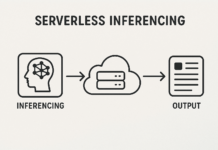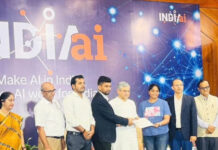Considered as the fourth industrial revolution, Blockchain Technology is making news everywhere. This technology that was created for supporting cryptocurrencies has found ways to enter different industries like finance, commerce, judiciary & so on.
In this article, I will discuss how Blockchain was built, how it works & also some of its features. It is a must read for those who have been hearing about the Blockchain technology from here & there and feel curious to know more Learn Tech News.
Let us begin!
Background of Blockchain Technology
Invented by Satoshi Nakamoto in the years 2008, Blockchain Technology served as the very effectual public transaction ledger of Bitcoin (cryptocurrency). But now it is going to have a great impact on institutional functions, national governance, education, business operations, & also our day-to-day lives in the twenty-first century, as projected by many scientists Fun Unblocked Games.
Moreover, Blockchain Technology has the power to convert today’s internet of ‘sharing information’ to the internet of ‘exchanging value’. And the main reasons for Blockchain to find so many applications are the transparency, immutability as well as reliability for the transactions that are implemented on a Blockchain network.
This wonderful technology is the hot topic for conversation all around the world today.
Blockchain Technology – What it means
Also referred to as the distributed ledger technology, Blockchain is an expanding list of records (named as blocks) that are linked to one another with the help of cryptography. Every block consists of the previous block’s cryptographic hash, a timestamp & date of the transaction. Moreover, it is designed in a way that it cannot allow its data to be altered. So, basically, Blockchain can be called a distributed ledger that has been constructed to record transactions taking place between two parties in a permanent & verifiable manner.
The blockchain has no centralized authority is managed by a peer-to-peer network that altogether adheres to a protocol to validate new blocks & support inter-node communication. Also, the data present in a block cannot be changed retroactively until the alterations are made in all the subsequent blocks which require consent from the majority of the network.
Features of Blockchain Technology
There are three major features of this technology which are:
- Decentralization
When I talk about decentralization, it means that the process of storage, data verification, transmission & maintenance on blockchain are located on an effective distributed system structure.
- Traceability
By traceability, I mean that the transactions on the blockchain technology are ordered in a chronological fashion and a cryptographic hash function connects all the blocks adjacent to one another. So, as the information on every block is tied by has keys, every transaction becomes trackable.
- Immutability
When any transaction is recorded in a block, there is a hash key that links it to the last block and another key that which is pointing to the following block. Hence, Blockchain technologies is immutable because if any of the transactions is tampered with, all the hash values will become different as a result of which all the nodes that are running on the exact same validation algorithm will detect the tampering.
























































